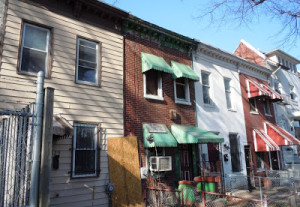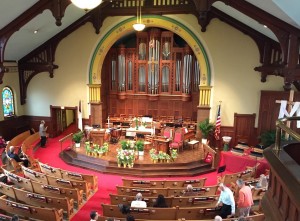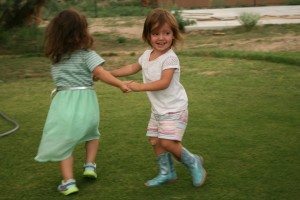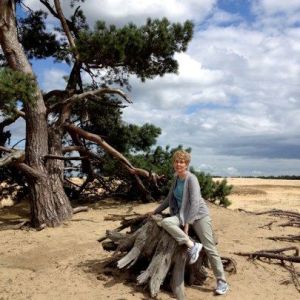Remembering may be a celebration or it may be a dagger to the heart, but it is better, far better than forgetting. ~ Donald M. Murray
I sit cross-legged on a pillow, playing tug-of-war with shelved books. I find it hidden, stacked between Richard Scarry’s Best Word Book Ever and a large rectangular volume of maps. Dust tickles my nose as I run my hand over the linen-covered yearbook embossed with the class’s gold emblem.
Beside me, my laptop is open to a Facebook group page, Gone But Not Forgotten. It lists those from my class who have died. How many could be gone from our 450+ class of 1977? I squint, adjust the brightness of my computer’s screen, and strain to read the list. As I turn each page of the yearbook, matching faces with names, I hug myself around my waist. Sharp grief elbows my stomach. Tears puddle in the knot-holes of the pine floor beneath me.
I cover my eyes, hoping the names will fade back into the screen if I don’t peek. But, like a monster in a horror film, death doesn’t evaporate during my game of peek-a-boo. I uncover my eyes.
* * * * *
A shy boy with smiling eyes, long curly bangs, and a slight tilt of his head stands dressed in a black jacket and tuxedo shirt with bow-tie. I imagine he is, like me, eager to pack his suitcase and throw off the constraints of high school. His name is written in a plain font on the list. I don’t know when or how he died—or why.
I remember sitting next to him in an economics class. Our marriage was arranged by a creative teacher who divided the class into married couples and assigned each a starting sum of money to work with. Every week we withdrew a sliver of paper from a bowl, on which our teacher had written a financial difficulty to test our ability to create a budget and stick to it. I gave birth to twins, had to purchase a washing machine and dryer, and my husband’s hours at work were cut back. Groans of despair, lusty laughter, and sidewise glances at my spouse filled the class hour. I was a little bit in love with my husband.
Turning glossy page after page, images of the dead remind me how I categorized each person in my class, even the ones I didn’t know. I remember faces, voices, the bounce in someone’s walk, and the shuffle of another. Classmates resurface in my memory: the popular, nerds, band nerds, jocks, hybrids, and the ones who gathered outside a designated entrance to the school for a smoke break. Their group was known to me and some of my friends as the freaks.
Questions sometimes floated around the hallways: Do the freaks smoke weed? Do they “fool around” in corners? I mixed harsh judgement of them with my desire to join them. Incognito.
Plagued by hormone-soaked daydreams of cigarette smoke exhaled in dark corners, I thought the freaks must be bad people; some even scared me. When one, a girl wearing a frayed denim jacket and low-slung jeans, spoke with genuine kindness to me, I was perplexed. At that time in my life, God was a square: predictable, with clean corners, a deity of certainties.
* * * * *
I did not choose my first college roommate. The housing office paired me with someone from my high school class. But, I didn’t know her.
She was a freak.
The entire month before classes started, I worried. Does she know who I am? What if she doesn’t want to be my roommate? Should I call her and ask her if she wants to have matching bedspreads?
I told my mother I wanted sheets and matching curtains for my dorm room in a blue tie-dyed pattern I had seen in a catalog. While different from my usual love of pink and blue florals, I thought a hippie style would give my roommate the impression I was chill.
I remember when she arrived to our dorm room. My wooden Coca-Cola crate painted high-gloss blue was hung on the wall, filled with knick-knacks and memorabilia. New sheets were cornered tight on my bed accompanied by a matching sheet draped on a curtain rod at the window. Towers of textbooks, notebooks, folders, and magazines were already stacked on my desk.
When she arrived, she said something like “this looks nice” and plopped a bag on her bed. We introduced ourselves in an exaggerated fashion, shaking hands, and laughing about What are the chances that…?
Her smile was crooked, and she studied my face like she was mining for truth, or that’s how I felt.
“Do you mind if I crack open the window?” she asked. “I need a smoke.”
I said sure, even though I wasn’t sure of anything, except that I didn’t want to be a party-pooper.
As the semester went by, my roommate partied. Beer was a staple in our mini-fridge, and when an uncooperative breeze changed direction, her cigarette and joint smoke wafted under our door into the hall. I became the doorkeeper, listening for the approaching footsteps of our strict floor captain. Even though I did not participate in her activities, I knew I was her friend. I had her back.
When I vomited my way through a wicked stomach virus, she ran to the Quik Mart, bought ginger ale, and wedged it beside her beer in our fridge. She had my back.
God was smoothing the sharp corners of my world, rounding and rounding it into a growing, multi-colored circle.
* * * * *
I scroll down the list and stop. Her name is there.
In my mind’s eye, I imagine her in a black and white photograph. She is tipped back in her chair, legs crossed, feet up, smiling after taking a long drag from her cigarette.
* * * * *







 is plain to see that the family tree has long had the perfect spot for their branches to grow. They have filled a gap we didn’t know existed until they arrived; they have generated love we didn’t know was missing until it was exchanged. Perhaps additional branches are still hiding in the roots of our family tree–my own husband and children? more children for my sister? other branches that will get grafted on in a mysterious way? Only with the passage of time, with the insight of setting the Christmas table for years to come, will those answers make themselves known.
is plain to see that the family tree has long had the perfect spot for their branches to grow. They have filled a gap we didn’t know existed until they arrived; they have generated love we didn’t know was missing until it was exchanged. Perhaps additional branches are still hiding in the roots of our family tree–my own husband and children? more children for my sister? other branches that will get grafted on in a mysterious way? Only with the passage of time, with the insight of setting the Christmas table for years to come, will those answers make themselves known.
